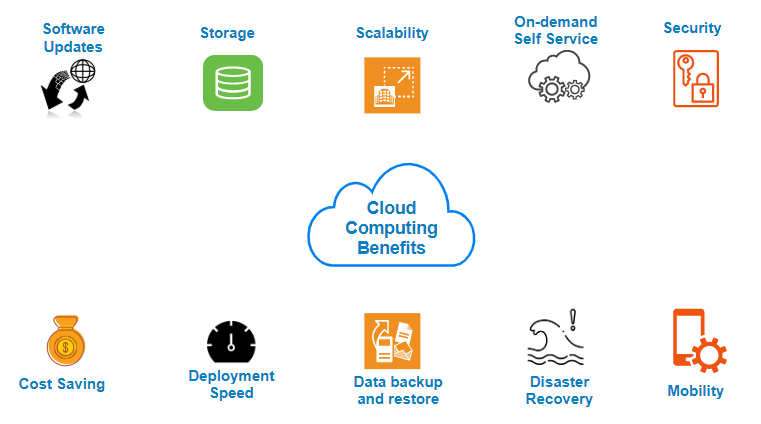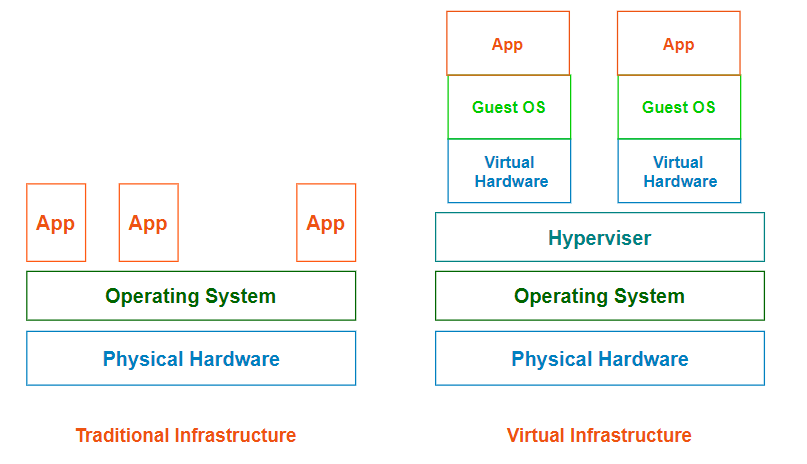What is Cloud Computing?

Cloud computing is a model to access IT resources (servers, storage, databases, networking, set of application services, etc.) as a service through internet. It allows applications and services to run on a distributed network using virtualization technology.
Today almost everyone uses cloud computing such as startups, organizations, IT professionals, analysts, and individual users. For example, some well known software and applications such as Netflix, Instagram, Office 365, LinkedIn, etc. are running on cloud.
Benefits of cloud Computing

- Cost Savings: -You don’t need to buy physical hardware and setup infra Infrastructure to build a software solution. You can get ready for Infrastructure in a few minutes on a pay-as-you-go basis. It helps you to save a lot on capital costs.
- Deployment Speed: As cloud computing can provide Infrastructure in a few minutes, now it’s easy to deploy your services in a few clicks and with less effort. The time consumed in deployment depends on what technology is used in your application. A study says that companies who have deployed their applications on the cloud are gaining a competitive advantage because of rapid development and early in the market.
- Data back-up and restore: It is easy to take back up and restore data from cloud. You can also configure more (data replication policy) to make sure data availability even after a disaster.
- Disaster Recovery: One of the most important factors to the success of business. Unfortunate things such as downtime of servers/services, disaster on one of your hosted regions, etc. can happen at any time even if your organization planned everything very well. The best way to manage disaster is a speed up your recovery. cloud based services allow to recover your business quickly from natural disasters, server downtime, power outages etc.
- Storage capacity: You can store a lot of data (almost limitless) on cloud with cost applied by cloud providers. Cost of storage depends on some parameters like how frequently you want to access it, where you want to store it etc.
- Reliability: Reliability and availability in cloud computing is one of the great advantages of cloud computing. Cloud providers maintain their infrastructure for running workloads that require high availability.
- Mobility: Cloud computing allows mobile access to corporate data using internet from anywhere. This is a great way to offer conveniently accessible information for remotely working co-workers.
Including above some more benefits of cloud computing are Automatic Software Updates, On-Demand Self-service, Multi-tenancy, Sustainability, Scalability, etc.
Understanding Virtualization in Cloud Computing
Virtualization is a technique to transform physical infrastructure such as operating system, storage devices, network, etc. into virtual infrastructure. It allows multiple users to run multiple software and application on the same server at the same time.
Virtualization is one of the core components of cloud computing. For example, If you want to create a private cloud you will need virtualization software in order to create a virtual infrastructure like networks, servers, storage, etc. Virtualization enables to share same resource with multiple users, shared resources help to make cloud computing costs efficient, maximize utilization of servers, and better accessibility, and scalability.

Different Types of virtualization are used in cloud computing such as Network virtualization, Operating System Virtualization, Hardware Virtualization, Server Virtualization, Storage Virtualization, etc.
